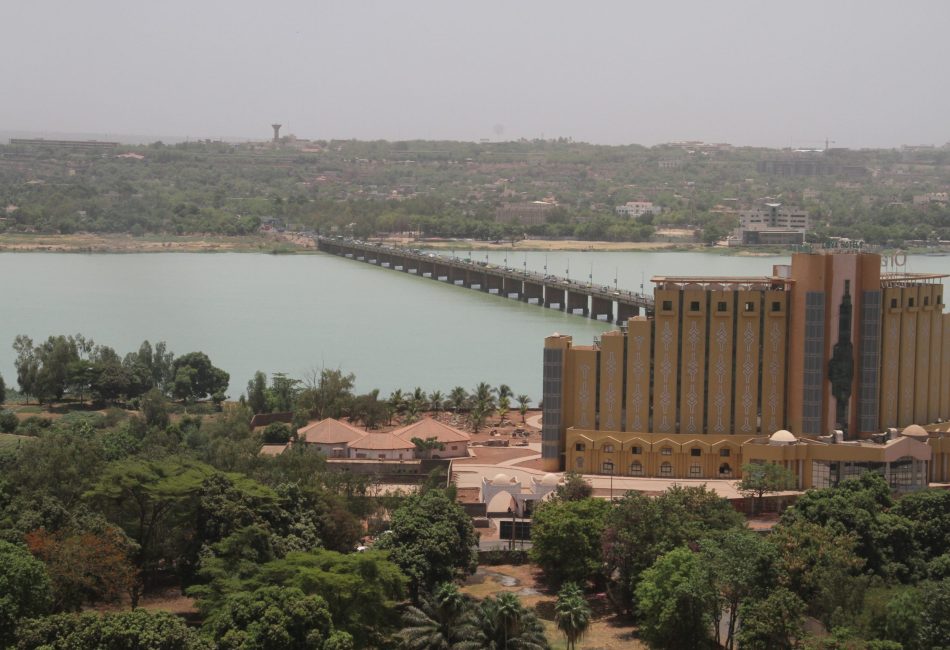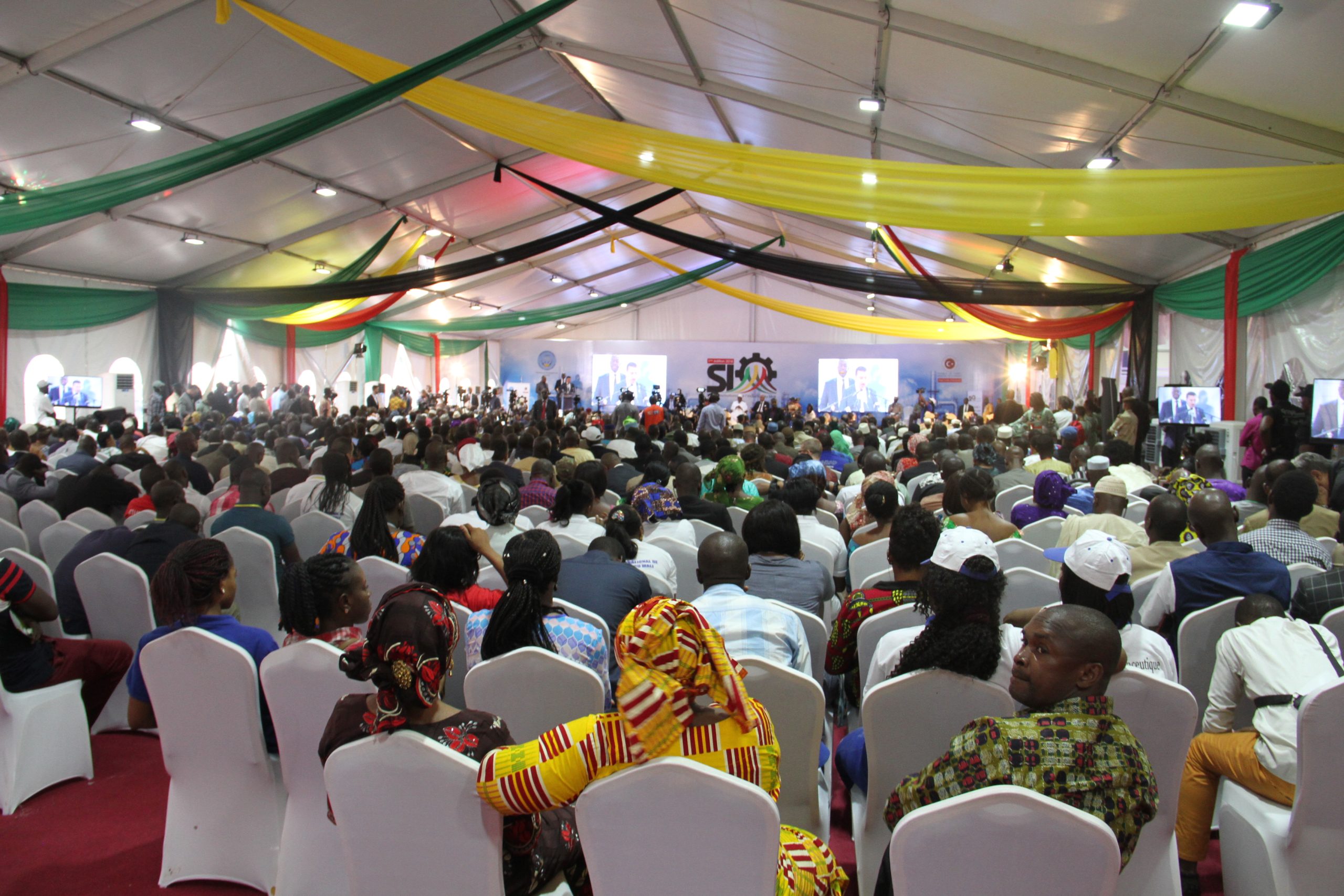
NABC and Mali
The NABC has a long track record of facilitating business relations between the Dutch private sector, and companies, and public sectors in Burkina Faso, Mali and Niger.
Currently (2022 up to 2025) the NABC together with PUM and Yiriwa intercontinental consulting implements a three-year programme called Agriboost, aiming to strengthen the horticulture and poultry sectors in Burkina Faso, Mali, and Niger by working with 60 successful, profitable, and innovative business champions. These Business Champions are entrepreneurs who have already demonstrated their competence in running successful businesses.
Through knowledge sharing, technical assistance, and enhanced trade relations, the programme aims to promote economic growth and development in the poultry and horticulture sector in the Sahel, and foster collaboration between the region and the Netherlands. One of the activities has been the organisation of stands at the SARA (agricultural fair in Abidjan) in 2023 where we matched around 30 companies from the Sahel with Dutch companies.
In October 2019, the Francophone Africa Business (FAB) Forum was put forward amid the commercial mission from Mali to the Netherlands. It envisioned to create partnership in water, energy, and logistics in collaboration with the Netherlands Enterprise Agency (RVO) and the Embassy of the Netherlands for Mali.
In May 2018, the NABC organized the Francophone Africa Business (FAB) Forum which included Malian representants from the Chamber of Commerce and Industry of Mali and the Agency for the Promotion of Investments of Mali. The goal was to foster and increase partnerships in agribusiness.
In December 2017, an outgoing trade mission went to Mali. water, energy, logistics, packaging and environmental assessment
In October and November 2017, NABC organized an incoming trade mission with representants coming from Mali. The mission focused on water, energy and logistics. It was planned jointly with the Francophone Africa Business (FAB) Forum.
In August and September 2016, NABC arranged an incoming agricultural mission to the Netherlands with delegates from Mali, Niger and Burkina Faso.
In November 2015, NABC attended the Dutch pavilion at the 6th International Mining & Petroleum Exhibition & Conference (JMP), initiated by the Embassy of the Kingdom of the Netherlands in Bamako (EKN) and organized in cooperation with the NABC. The goals were tp promote cooperation between Dutch and West African businesses and gain insight (and eventually a foothold) in the mining sector in Mali and the region of West Africa.
In April 2015, the Mali-Niger-Burkina Faso Business Forum was initiated and promoted Business and Investment Opportunities in Mali, Niger and Burkina Faso.
In June 2014, the NABC organized the Mali-NL Business Forum coupled with Business 2 Business (B2B) meetings. The aim was to support new business partnerships between the Malian and Dutch private sector.
In October 2014, an outgoing training mission to Niger, Mali and Burkina Faso was planned.
Investment climate
The Malian economy mainly revolves around agriculture (especially cotton) and gold mining. More than 80% of Malians work in agriculture or fishing (lakes and river deltas). The Malian industry is engaged in the processing of agricultural products. The country is one of the top cotton producers in Africa, accounting for almost 7% of its exports in 2023. In recent years, the service sector has also been on the rise.
Climate change, disappointing harvests and fluctuating prices of agricultural products and gold make the Malian economy susceptible to strong fluctuations
Following the coup d’état in August 2020, the transition government adopted a new constitution in June 2023. The situation in the country remains tense, and there have been delays in the adoption of the necessary institutional reforms.
Following the political changes, Mali disentangled itself from international partnerships such as the Economic Community of West African States (ECOWAS) and joined new ones, for instance the Alliance of Sahel Countries (AES). With the coronavirus pandemic and the Russian invasion of Ukraine, the Growth Domestic Product of Mali (GDP) has been showing signs of resilience. The annual growth of the GDP is on the rise with 5.2% in 2023 compared to 3.5% in 2022.
Mali has a consequent potential in renewable energy as it has rainfall and sunny weather all year-round which create advantageous conditions. With a national electricity access rate of less than 40 percent and a rural access rate of less than 20 percent, the transition government has made energy infrastructure development a priority and is eager to attract foreign investment to develop the sector.

There are no limits on the establishment and ownership of foreign and domestic private entities apart in the mining and media sector.
Nevertheless, Foreign Direct Investment (FDI) are quite weak and unstable due to the country’s political and security situation. The total stock of FDI inflows towards the country amounted to about 253M in 2022, showcasing a dramatic drop of 60.5%.
The Malian government has been setting up new policies to give investments incentives. It has mainly put forward promotion policies to encourage competitiveness and private sector participation. The main sectors include agribusiness, livestock, forestry, energy, water, transportation, and fish processing.
The main export products out of Mali are gold and cotton. For the Dutch private sector Mali has opportunities in a.o. the horticulture and agriculture sector (seeds, potatoes, crop protection, fertilizers), processed and fresh mangoes, and in the poultry and dairy sector.
Investment Climate Key Indicators & Metrics:
| Measure | Year | Index/Rank |
| Corruption Perceptions Index | 2024 | 135 of 180 |
| Economic Freedom Index | 2025 | 129 of 184 |
| Global Innovation Index | 2025 | 135 of 139 |
| FDI Inflows (% of GDP) | 2024 | 2.7 % |
Diplomatic Relations
The Netherlands
Embassy
Roelof van Ees has been Chargé d’affaires ad interim of the Kingdom of the Netherlands to Mali since 2025.
Mali
Embassy
Mali is represented in the Netherlands via its embassy in Brussels, led by H.E. Amb Elhadji Alhousseini Traore, who took office in 2023.
Presence of Dutch Companies
There are currently around 69 Dutch companies active in Mali.
Reports
Mattijs Renden
- Sahel Region, Côte d'Ivoire, Tunisia, Ethiopia, Kenya, Ghana
- mattijs.renden@nabc.nl


